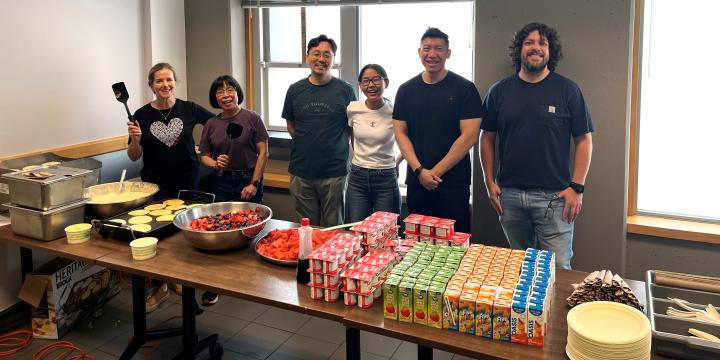
“If I had known, I never would have reported.”
This statement is all too familiar to people who work with survivors of domestic and intimate partner violence. Those who make the courageous decision to report have a difficult, potentially life-threatening, path ahead as they deal with complex, and sometimes hostile, institutions.
A woman reporting intimate partner violence often finds herself involved with both the criminal and family legal systems. Currently, there is no formal mechanism – no institutional or procedural step – for the Criminal and Family Law Courts to communicate about a domestic violence charge. This puts survivors and their children at risk – an important issue to shed light on as we wind down Victims and Survivors of Crime Week (May 26 - June 1).
While an abusive partner may face criminal charges for domestic violence, that process is not necessarily communicated to the family court judge who makes decisions about the protection and care of the children. Social workers are not always involved and women often self-represent, so the onus is on the survivor to explain the history of family violence and charges to the judge, who may or may not accept this information as evidence.
Already faced with the sobering task of repeating her story to a family court judge, a woman must also contend with a court process that places her in direct contact with an abusive ex-partner.
When an abuser applies to family court for access to his children, the survivor is drawn back into the court process, sometimes after serving as a criminal witness in her domestic violence case. When the Courts order contact between children and their father, the survivor is then forced to have contact with her abuser to arrange visitations. Abusers can also actively use the justice system to continue their abusive behavior, filing unnecessary applications, stretching out the litigation and delaying resolution.
It is difficult to overstate the emotional and financial cost for survivors of family violence. Because many survivors are also financially disadvantaged by their flight from their abusive partner, they rarely have the benefit of a lawyer to stand between them and their abuser.
Many survivors seek to have charges dropped, at a time when research shows they are most at risk of further violence or even death.
What if there was another way?
Specialized Domestic Violence Courts, like the one in Surrey, are courts designed to address and help resolve the unique challenges presented by intimate partner violence. However, Surrey’s Court deals only with limited Criminal matters. Toronto’s Integrated Domestic Violence Court, in operation since 2011, hears all matters touching on a single family – both Family and Criminal. Although the criminal charges and family applications are heard separately, the same judge will hear both on the same day. This saves women from having to re-tell their traumatic stories while making courts faster, more efficient and resulting in fewer conflicting judgments and court orders. The judge is able to monitor the entire process, increasing accountability for the accused and enhancing the safety of the survivor.
Studies of Toronto’s Integrated Domestic Violence Court have shown a marked reduction of conflict over child-related matters, improvement in parenting cooperation and improved child well-being. These courts also accomplish more with fewer court appearances, reducing financial and emotional costs for the family and easing strain on the judicial system. Criminal offenders in the integrated court were also more likely to complete court-ordered counselling and other requirements of their sentence, and were less likely to reoffend.
Surrey’s Domestic Violence Courts would be the perfect place to have a pilot of our own. By duplicating Toronto’s model, we would be integrating the two silos of family and criminal law into a single court, decreasing inconsistent orders and providing speedier and safer outcomes for parents and children.
Patrick Shannon is Staff Lawyer and Legal Educator with YWCA Metro Vancouver. Cori Kleisinger is a Transition House Program Manager with YWCA Metro Vancouver.

